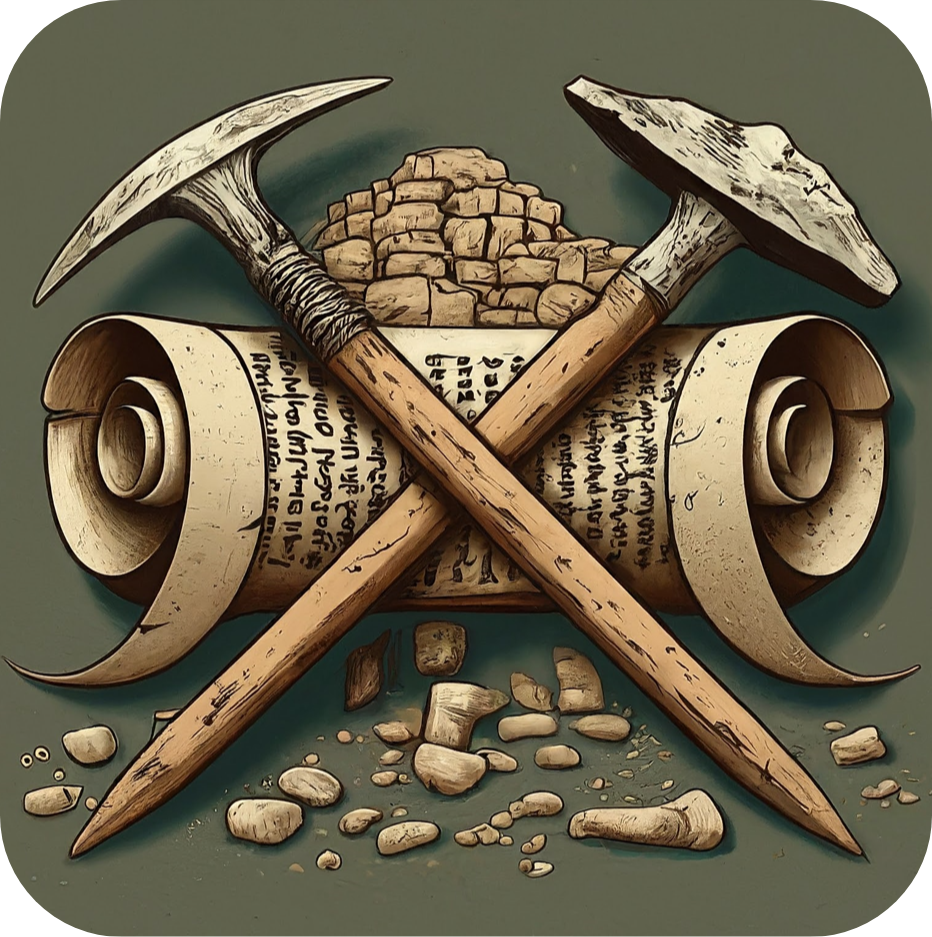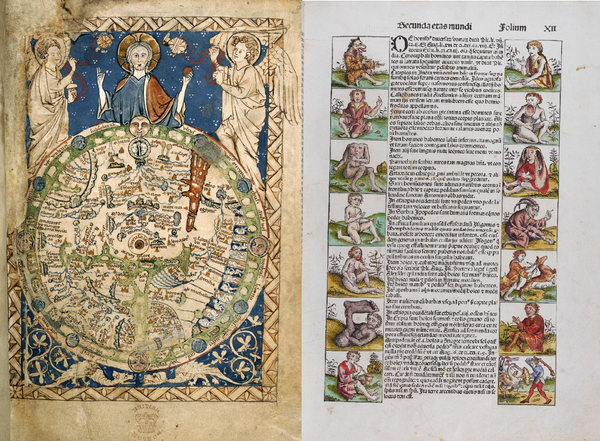Divination According to the Bible
This is a brief overview, but there are many, many different types of divination (ways of getting answers from the "gods"), some of which Yahweh does actually condone as long as it was His people going to Him and not other spiritual entities.

According to the Lexham Bible Dictionary, divination is a "Ritual action employed to determine the will, knowledge, or plans of deities." This topic appears throughout the Bible and oftentimes in narratives you wouldn't expect to find them in or may simply not remember. Let's look at two of the strange and mysterious instances of divination found in the book of Genesis.
The Father in Law
Genesis 30:27
But Laban said to him, “If I have found favor in your sight, I have learned by divination that the LORD has blessed me because of you.”
Laban used divination and discovered that God had blessed him because of Jacob. This was most likely done through the idols he had that Rachel stole (Genesis 31:30-35). This divination, no doubt done through demonic forces, is surprising in that it resulted in the glorification of God. Even Laban, clearly acting in a wicked way, gets a truthful message from demonic forces, explaining that it wasn't them who had blessed Laban but the God of Jacob. It is for this reason that Laban does not want Jacob to leave, and it is, at least partly, for that reason that Jacob leaves secretly. When he does leave, Rachel steals the idols (referred to in some translations as household gods). This clearly scares and frustrates Laban, as he proceeds to hunt them down for the idols.
This is a clear case of divination that is unacceptable to God, performed by one who is not obedient to and does not claim to follow Yahweh. The next story, however, is a less clear instance where divination is at least claimed to have been performed by one who follows God relentlessly.
The Younger Brother
Joseph and his brothers are a classic Biblical narrative, commonly taught to children in Sunday schools, but some of the details of their verbal exchanges are largely neglected in teachings and conversation. One of the lesser mentioned details is the cup that Joseph framed his brothers for stealing, to test the position and inclination of their hearts.
Genesis 44:4–5
They had gone only a short distance from the city. Now Joseph said to his steward, “Up, follow after the men, and when you overtake them, say to them, ‘Why have you repaid evil for good? Is it not from this that my lord drinks, and by this that he practices divination? You have done evil in doing this.’”
The fact that Joseph told his servant to say this to his brothers should give us pause. Isn't stealing a silver cup enough? Of course, it would be enough to imprison them but accusing a group of men of stealing a cup of divination from the most powerful ruler in Egypt, aside from Pharaoh, is far worse. Adding insult to injury, this isn't just calling them thieves — it's calling them thieving idiots. Who steals a cup that is used to see the future? Whoever has it, would easily know you were going to do so. Now of course, even from the pagan perspective, it isn't that simple. But it really does make them look like fools.
We do have to face the facts about this story. Either Joseph was lying, or he really did practice divination using that cup. One can easily say, "Well, he didn't lie. He made his servant lie." This argument, however, falls apart as you continue to read the story.
Genesis 44:14–15
When Judah and his brothers came to Joseph’s house, he was still there. They fell before him to the ground. Joseph said to them, “What deed is this that you have done? Do you not know that a man like me can indeed practice divination?”
Joseph identifies as one who can practice divination — directly to his brother's faces. This is also not proof that he does so, but it would at least prove that he was actively engaged in deceiving his brothers with the persona of one who practices divination, if indeed he did not. We know he had his servant tell them that he did so, and that he himself claimed he could. To be clear, from the text alone, one simply doesn't have enough to definitively state that he did or did not do so with the cup in question. That being said, we have less reason to think he didn't use it than one might instinctively assume.
Joseph was a very good man who followed God above all else in most circumstances. So I genuinely don't believe that he performed any type of unholy witchcraft. However, it has come to my attention that not all forms of divination are prohibited, strictly speaking, according to the Bible. I know, it's a shocking statement, and I even feel weird saying it, but it's only strange to say and hear because we unsurprisingly think about divination differently than the ancient Jews did.
Ancient, Biblical, Scholarly Perspectives
Divination was routinely performed by God's priests, followers, and even the disciples of Christ, according to the Bible. If you've read the Bible, you already knew this but may not have recognized it for what it was.
Let's start by looking at an introduction to divination by the Lexham Bible Dictionary.
Lexham Bible Dictionary
People throughout the ancient Near East and Mediterranean region employed divination to access the domain of the gods, who they believed could communicate their will or knowledge through dreams, prophecy, or theophany. Ancient peoples devised methods they thought could force (or at least prompt) the gods into revealing information. Divination was seen as the means for determining divine knowledge, hidden functions of the world, outcomes of future actions, or the future itself. The Bible contains references to, and examples of, divination in Israel and surrounding nations.
This is a brief overview, but there are many, many different types of divination (ways of getting answers from the "gods"), some of which Yahweh does actually condone as long as it was His people going to Him and not other spiritual entities. Note that God Himself used dreams (through Joseph in Genesis 40:9-13, 41:15-36 and Daniel in Daniel 2), prophecy (Moses, Isiah, Ezekiel, and all of the other prophets in the Bible), and theophany (Genesis 3:8, The Angel of the Lord, and Jesus Himself) throughout the Bible to communicate His will. We even see God's priests performing cleromancy at the command of God Himself, by casting lots and using both Urim and Thummim to determine the will of God (Proverbs 16:33, Leviticus 16:5-10, Exodus 28:30, Leviticus 8:8, Numbers 27:21, 1 Samuel 28:6, Ezra 2:63). This was not evil, it was the righteous will of God to communicate with His people. As it was to communicate through dreams, and prophets.
Communication through such means by demons, however, is obviously prohibited.
Deuteronomy 18:9-13
9 “When you come into the land that the Lord your God is giving you, you shall not learn to follow the abominable practices of those nations. There shall not be found among you anyone who burns his son or his daughter as an offering, anyone who practices divination or tells fortunes or interprets omens, or a sorcerer or a charmer or a medium or a necromancer or one who inquires of the dead, for whoever does these things is an abomination to the Lord. And because of these abominations the Lord your God is driving them out before you. You shall be blameless before the Lord your God, for these nations, which you are about to dispossess, listen to fortune-tellers and to diviners. But as for you, the Lord your God has not allowed you to do this.
God prohibits going to any other spiritual being for answers. Even this law was spoken to the people by Moses, God's prophet at the time, which is a form of divination. In fact, a large majority of the Old Testament is the direct result of divination, as most of it was written by God's prophets. As Christians, our very belief in the Bible is that it is God's divine Word, that it was written through divine inspiration. It is a holy form of divination, though we feel uncomfortable addressing it as such. Still, it is important because we need to know what is acceptable according to God and what is not.
Lexham Bible Dictionary
The written word became highly significant in early Judaism. Ezra’s reading of the Torah was a pivotal moment in the shift from the practices of the religion of Judah to the religion of Judaism. Noegel notes that biblical passages such as the writing of the Ten Commandments (Exod 31:18) stress the importance of words (Noegel, “Sign,” 146). In many regards, the “sacred text” takes an authoritative stance over divination in later Judaism, or at least one that it must be checked against.
Closing Thoughts
As with nearly everything from demonic forces, pagan divination is a counterfeit of what God designed, twisted into an attempt to obtain knowledge and seize control. God's design is for us to surrender control and come before Him when making decisions in order to align with His will. One who reads Histories by Herodotus, a Greek history book from the 3rd century BC, is greeted with dozens of stories of kings who spent their time trying to subvert or counteract prophecies obtained from divination. One such example is that of king Croesus and the oracle. The story is found in Book 1 of Herodotus's Histories, particularly in sections 53-55. In this story, king Croesus tragically misinterprets the response of the oracle who told him that if he fought against the Persians he would destroy a great empire. He assumed the great empire would be his enemy’s but it was his own that fell. The story of king Croesus was a reminder that divination is a dangerous game and taking things into your own hands is even worse. The Jewish leaders would unfortunately make the same mistake, and by misinterpreting the prophecies of the Messiah and taking things into their own hands, they evidently fulfilled the prophecy by crucifying Jesus Christ. Like king Croesus, their attempt to destroy what threatened them fell on their own heads and brought about their own destruction. May we never make this grave mistake, and choose to surrender to Christ as we seek His will over our own.
Works Cited
- Lowell K. Handy, “Divination,” ed. John D. Barry et al., The Lexham Bible Dictionary (Bellingham, WA: Lexham Press, 2016).
- Herodotus. Histories. (Original work published ca. 430 BCE)




